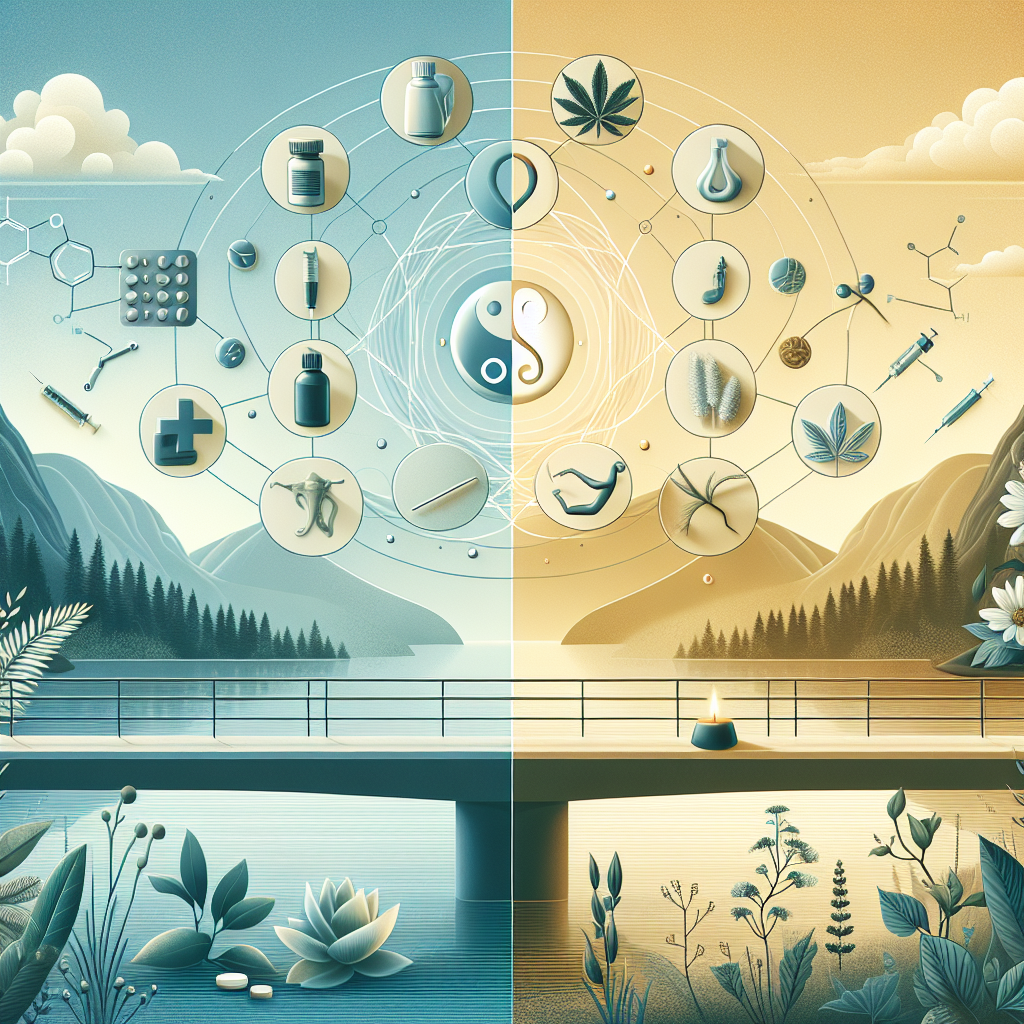Holistic Healing: Bridging Western Medical and Eastern Alternative Approaches to Treating Sinus Infections
Sinus infections, also known as sinusitis, affect millions worldwide, manifesting as inflammation of the sinus cavities located around the nose. The discomfort can range from a mild nuisance to a debilitating condition, characterized by thick nasal mucus, facial pain, congestion, and headaches. While Western medical practitioners and Eastern alternative medicine practitioners offer distinct approaches to treating sinus infections, understanding and integrating both approaches can provide a more comprehensive pathway to healing.
Western Medical Approach
In Western medicine, sinus infections are typically classified into acute or chronic categories. Acute sinusitis often arises from a viral infection but can be complicated by bacterial infections. Chronic sinusitis, on the other hand, often involves persistent inflammation that can last for months, sometimes in the absence of an infection.
Diagnosis
Diagnostics in Western medicine rely heavily on clinical examination and imaging techniques. Physicians may utilize nasal endoscopy, which involves inserting a thin tube with a light and camera into the nasal passages to inspect the sinuses. CT scans are also commonly used to provide detailed images of the sinuses, helping to identify blockages and other issues.
Treatment
1. Medications: Western medical treatments often start with medications. Decongestants like pseudoephedrine can reduce nasal congestion but are not recommended for long-term use due to potential side effects such as insomnia and increased heart rate. Nasal corticosteroids, such as fluticasone, are commonly prescribed to reduce inflammation. Antibiotics may be prescribed if a bacterial infection is suspected, although overuse can lead to resistance and is typically avoided unless confirmed necessary.
2. Saline Nasal Irrigation: This is a simple and effective method recommended by many Western physicians. Using a saline solution to rinse the nasal passages helps to clear mucus and allergens, providing symptomatic relief.
3. Surgery: For chronic or severe cases unresponsive to other treatments, surgical intervention may be considered. Functional endoscopic sinus surgery (FESS) is commonly performed to remove blockages and improve sinus drainage.
Eastern Alternative Approach
Eastern alternative medicine, encompassing practices from Traditional Chinese Medicine (TCM), Ayurveda, and other holistic traditions, adopts a more integrative perspective on sinus infections. These practices focus on balancing the body’s energy and enhancing its natural healing capabilities.
Diagnosis
Eastern practitioners often utilize a holistic diagnostic method, looking at the patient’s overall health, lifestyle, diet, and emotional state. For instance, TCM practitioners might examine the tongue, feel the pulse, and consider the patient’s symptoms in the context of energy imbalances within the body.
Treatment
1. Herbal Remedies: Herbal medicine is foundational in Eastern treatments. In TCM, herbs like Xanthium (Cang Er Zi) and Magnolia Flower (Xin Yi Hua) are commonly used to clear nasal passages and reduce inflammation. Ayurvedic practitioners might recommend herbs such as turmeric and holy basil, known for their anti-inflammatory and antibacterial properties.
2. Acupuncture: This ancient practice involves inserting thin needles into specific points on the body to stimulate energy flow and reduce inflammation. Studies have shown that acupuncture can help alleviate symptoms of sinusitis, such as pain and congestion.
3. Diet and Lifestyle Changes: Eastern medicine emphasizes the importance of diet and lifestyle in managing sinus infections. TCM suggests avoiding cold and raw foods, which are believed to exacerbate congestion and dampness in the body. Instead, warm, cooked foods and plenty of hydration are recommended. Similarly, Ayurveda advises a diet that balances the body’s doshas (energetic forces) to promote overall health and prevent sinus issues.
4. Nasal Irrigation: Like Western medicine, Eastern traditions also value nasal irrigation. The Ayurvedic practice of Jala Neti, using a neti pot to pour saline solution through the nasal passages, is a common recommendation for clearing the sinuses and improving breathing.
Bridging the Gap
While Western and Eastern approaches to treating sinus infections might seem distinct, integrating elements from both can provide a more comprehensive and individualized treatment plan. For instance, a patient experiencing chronic sinusitis might benefit from the combined use of TCM herbal remedies and Western nasal corticosteroids. Acupuncture can be used alongside medication to manage pain and inflammation, providing a holistic approach that addresses both the symptoms and the underlying imbalances in the body.
Complementary Techniques
1. Mind-Body Practices: Incorporating practices such as yoga, Tai Chi, or mindfulness meditation can enhance overall well-being and reduce stress, which is known to impact immune function and inflammation.
2. Probiotics: Emerging research suggests that gut health plays a role in immune function. Integrating probiotics, which are common in both Western and Eastern dietary recommendations, might help improve the body’s resilience against infections.
3. Environmental Control: Both approaches emphasize the importance of a clean environment. Using air purifiers to reduce allergens and maintaining good indoor air quality can help prevent sinus infections.
Conclusion
Holistic healing, which bridges Western medical and Eastern alternative approaches, offers a promising pathway for treating sinus infections. By understanding and integrating the strengths of both systems, patients can benefit from a more comprehensive and personalized treatment plan. This integrative approach not only addresses the immediate symptoms but also aims to enhance overall health and well-being, paving the way for long-term relief and prevention of sinus infections. Embracing the best of both worlds, a holistic perspective on sinusitis treatment fosters a balanced, effective, and patient-centered approach to healing.

